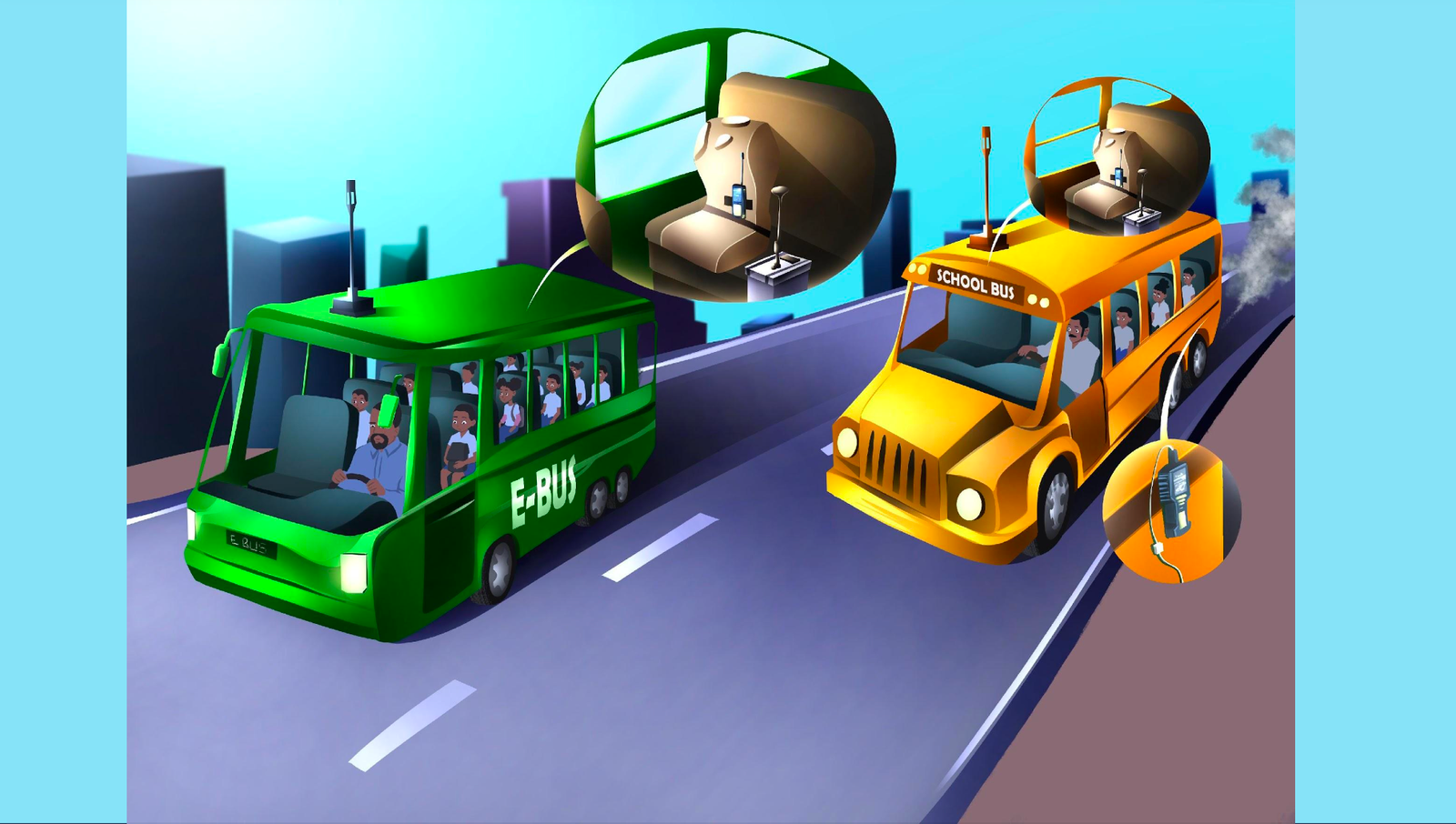
Transitioning to Electric School Buses in Africa: Health, Environmental, and Economic Benefits
- Current Situation:
- 100% of school buses in Africa are diesel-powered, with an average age of 15 to 20 years.
- Outdated buses contribute to self-cabin pollution, where toxic exhaust emissions accumulate inside poorly ventilated interiors.
- Health Risks of Diesel Emissions:
- Exposure to particulate matter (PM2.5) and nitrogen dioxide (NO₂) is linked to:
- Respiratory diseases (e.g., asthma, bronchitis).
- Cognitive impairment and reduced academic performance.
- Long-term health risks such as cancer and cardiovascular problems.
- Exposure to particulate matter (PM2.5) and nitrogen dioxide (NO₂) is linked to:
- Interventions for Cleaner School Transportation:
- Adopt electric school buses to replace aging diesel fleets.
- Retrofit existing diesel buses with electric drivetrains as a cost-effective alternative.
- Benefits for Children’s Health:
- Eliminates in-cabin emissions, ensuring cleaner air for students.
- Reduces children’s exposure to pollutants during commutes, improving respiratory health and cognitive performance.
- Environmental Impact:
- Reduces greenhouse gas emissions and contributes to climate change mitigation.
- Promotes sustainable transportation and aligns with global environmental goals.
- Economic Advantages:
- Lower operational costs due to savings on fuel and maintenance.
- Creates green jobs through the manufacturing, maintenance, and operation of electric buses.
- Encourages energy independence by integrating buses with renewable energy sources (e.g., solar charging stations).
- Conclusion:
- Prioritizing the transition to electric school buses in Africa offers health, environmental, and economic benefits. It ensures a safer environment for children, promotes sustainability, and supports long-term economic development through green technology adoption.